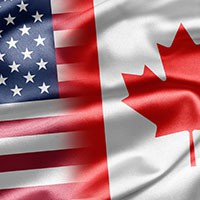
Immediate Expensing Rules: Good Tax Policy?
Over the course of the last two federal budgets (April 16, 2024 and November 4, 2025), the rules for claiming Capital Cost Allowance (CCA) have been uncertain. The proposal to extend immediate expensing rules for certain acquired assets were paused for over a year and then re-introduced in a series of four complex measures which together with new rules for Scientific Research and Experimental Development have become known as the “Productivity Super-Deduction”. A backdrop appears below. The key question: will this complexity be effective as an economic stimulator?Recent Study Shows That Rate Hike Would Hurt Canadian Home-owners
 How cash-strapped are your clients, really? Tax and financial advisors need to make that question a priority to really help younger clients before times get tougher for some. The Canadian Press, for example, recently reported about a survey by Manulife in which they found that “nearly three quarters of Canadian homeowners…would have difficulty paying their mortgage if their payments were to increase by more than 10 per cent.”
How cash-strapped are your clients, really? Tax and financial advisors need to make that question a priority to really help younger clients before times get tougher for some. The Canadian Press, for example, recently reported about a survey by Manulife in which they found that “nearly three quarters of Canadian homeowners…would have difficulty paying their mortgage if their payments were to increase by more than 10 per cent.”
DAC 2017: The Best Education and Networking Event of the Year!
 Over the past fourteen years, the Distinguished Advisor Conference (DAC) has established its reputation as the most comprehensive and strategic educational conference available to tax and financial advisors. Experts and visionaries from all sides of the financial services industry offer their wisdom on how you can sharpen strategic and technical skills required to best serve your clients in this time of significant change.
Over the past fourteen years, the Distinguished Advisor Conference (DAC) has established its reputation as the most comprehensive and strategic educational conference available to tax and financial advisors. Experts and visionaries from all sides of the financial services industry offer their wisdom on how you can sharpen strategic and technical skills required to best serve your clients in this time of significant change.
People in the News
 Laramie Tan-Amit has gained confidence in her role as a Professional Tax Practitioner and Bookkeeper.
“The designation has given me confidence and legitimacy as a practicing tax professional. Combined with my in-depth knowledge in accounting, I can better serve my clients thanks to the knowledge and skills I attained from the course.”
Laramie Tan-Amit has gained confidence in her role as a Professional Tax Practitioner and Bookkeeper.
“The designation has given me confidence and legitimacy as a practicing tax professional. Combined with my in-depth knowledge in accounting, I can better serve my clients thanks to the knowledge and skills I attained from the course.”
Use it Before It Disappears in 2018: The First-Time Donor’s Super Credit
 An important tax break is disappearing after 2017: The First-Time Donor’s Super Credit. This opportunity is of particular interest to advisors who work with higher-net-worth families and their adult children. In fact, discussing it as part of mid-year tax plan may make good sense for these taxpayers, especially if they wish to be strategic about their giving.
An important tax break is disappearing after 2017: The First-Time Donor’s Super Credit. This opportunity is of particular interest to advisors who work with higher-net-worth families and their adult children. In fact, discussing it as part of mid-year tax plan may make good sense for these taxpayers, especially if they wish to be strategic about their giving.



